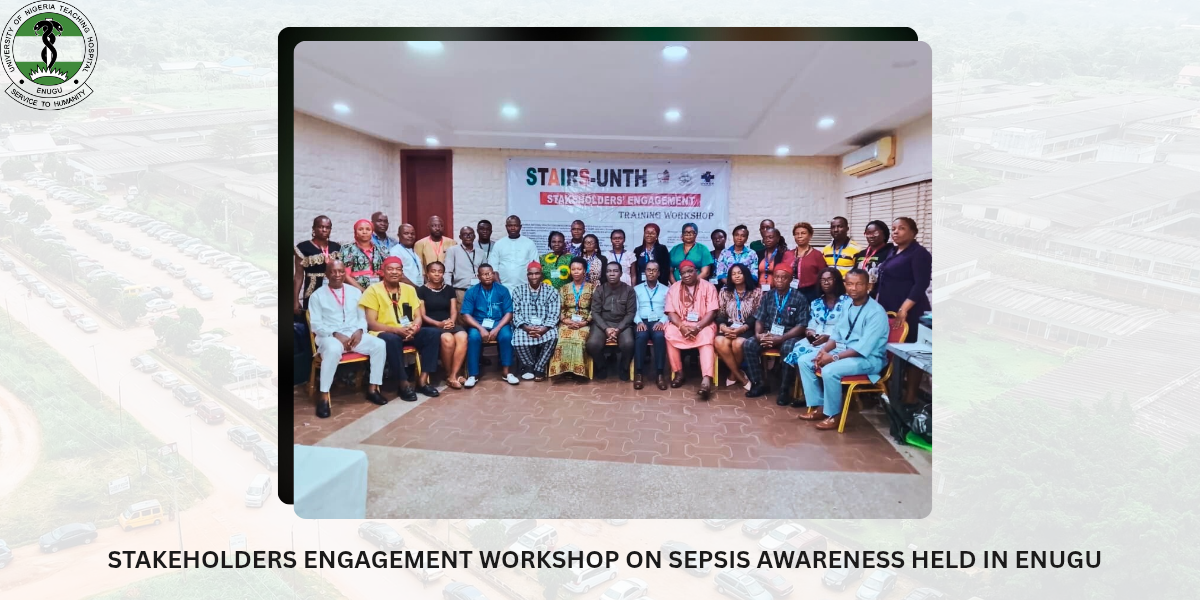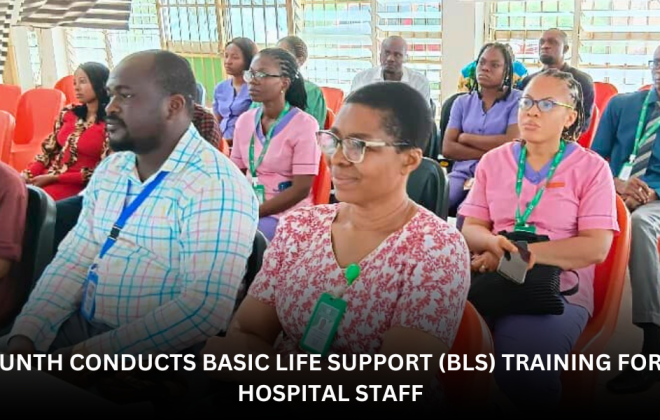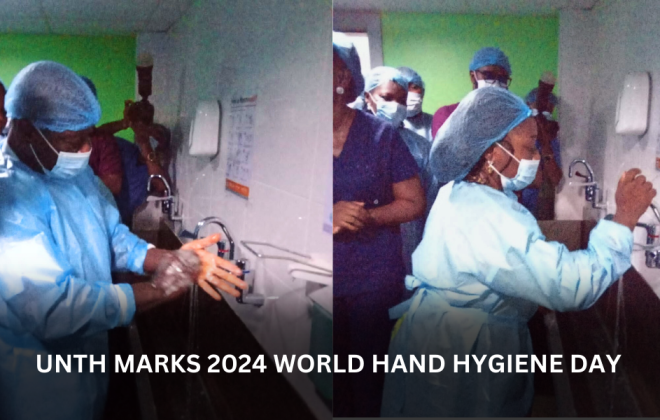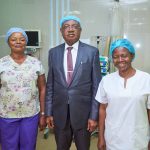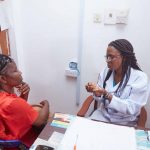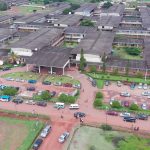Stakeholders Engagement Workshop on Sepsis Awareness Held in Enugu
By Dim Chinwendu Assumpter
UNTHNEWSONLINE
A two-day stakeholders engagement training workshop was organized by the STAIRS Project of the University of Nigeria Teaching Hospital (UNTH), Ituku Ozalla, in partnership with the Uganda National Health Consumers Organization (UNHCO) recently in Enugu.
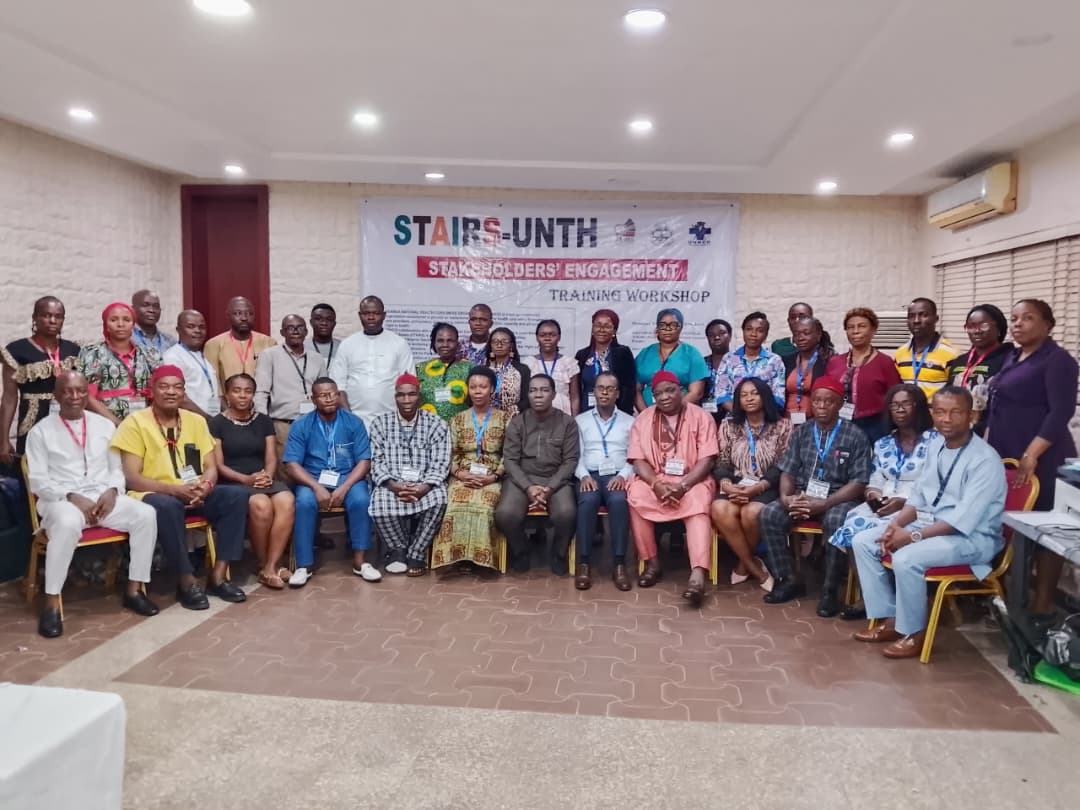
The aim of the workshop was to build the capacity of key stakeholders to effectively engage their communities in the ongoing “Fight Sepsis ” campaign.
During the event, participants were educated on sepsis and how it can be prevented and managed. The Principal Investigator, Dr. Uche Unigwe, explained that sepsis is a “serious complication of untreated infections, which can lead to multiple organ failure and, ultimately, death.” He stressed that symptoms such as “persistent fever, slurred speech, extreme shivering, reduced urination, severe breathlessness, discoloured skin, and the feeling of being close to death are warning signs that should never be ignored.”
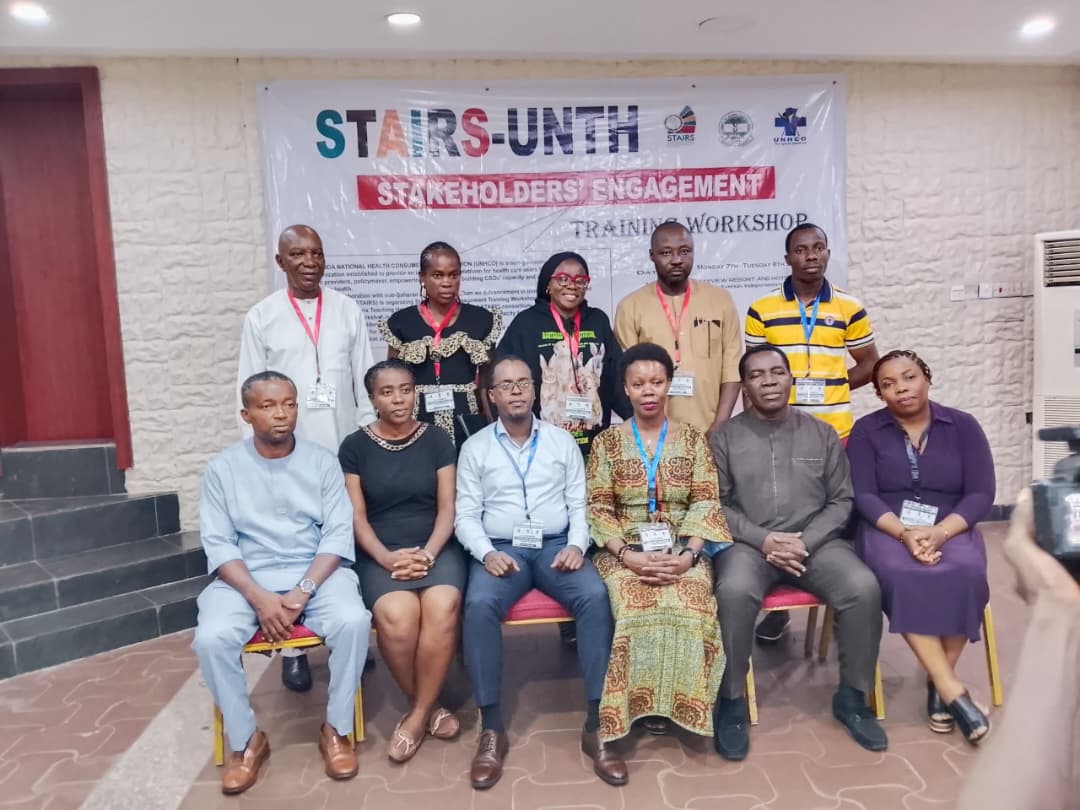
From the left, front row: Dr. Christopher Chukwu—Site Coordinator, Dr. Juliet Mmerem—Co-principal Investigator, Aziz Agaba—UNHCO Program Manager, Sylveria Alwoch—UNHCO Program Manager, Dr. Uche Unigwe—Principal Investigator, and Chioma Ukorah—Project Manager.
From the left, back row: Mr. Chukwuka Okafor, Asst. Admin. Officer; Mrs. Lovina Akpata, Project Secretary; Mr. Chukwuka Ude, Admin. Officer; and Mr. Ikechukwu Anyanwu, Asst. Project Manager.
Dr. Unigwe emphasized the importance of early medical attention and treatment to prevent complications. He also highlighted the goal of the workshop, amongst which is to empower stakeholders with the knowledge they need to share this life-saving information within their communities.
Mrs. Sylveria Alwoch, a facilitator from UNHCO, taught key topics including Citizen-Led Advocacy, Publicity and Media Advocacy, and Building and Sustaining a National “Fight Sepsis” Campaign. She advised that while community managers and leaders must advocate, it must be done constructively. She encouraged them to use their platforms to promote good governance and not as tools for conflict.
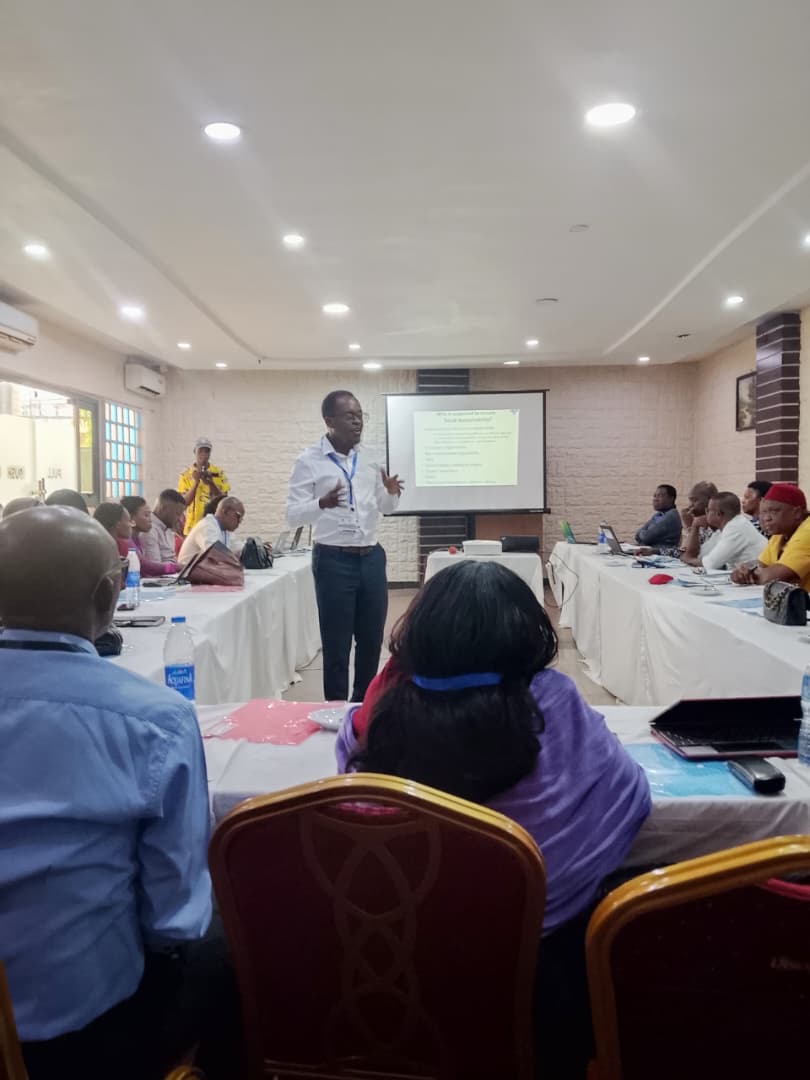
Mr. Aziz Agaba also facilitated sessions on Power Relations and Governance for Health, Legal Empowerment, and Health Rights Related to Sepsis Prevention, Recognition, and Management. He introduced the 3P model and emphasized the importance of patients knowing their rights. His message was clear: “Elevate the voice of the patients.”
Sepsis awareness stakeholders engagement training workshop at a glance.
Dr. Unigwe concluded by urging stakeholders to take the knowledge gained and implement it in their various communities. He encouraged them to educate people using simple explanations of sepsis symptoms so everyone can easily recognize the danger signs.
Highlights of the workshop included:
Interactive sessions, where participants exchanged ideas and suggested possible strategies for sepsis prevention and community engagement.
Practical community assessment exercises to help apply the lessons in real-world settings.
An interview session with the Principal Investigator, STAIRS Nigeria,
Dr. Uche Unigwe.
The event brought together a diverse group of key community figures, including church leaders, traditional rulers, civil society organizations (CSOs), Facility Health Committee (FHC) members, Primary Health Care (PHC) managers, youth leaders, and other opinion leaders—all working together to push forward the fight against sepsis.
Related Posts
Leave a Reply Cancel reply
Our Lastest Posts
- CMD UNTH COMMISSIONS A NURSING LAB IN THE COLLEGE
- LATE DR EGBUE HONOURED WITH A FLAG-STOP IN UNTH
- Management of Snake Bite At Home
- THE COMMONWEALTH PARTNERSHIP FOR ANTIMICROBIAL STEWARDSHIP PROJECTS IN UNTH PRESENT REPORT TO MANAGEMENT.
- QUANTUS MEDICAL FOUNDATION CONDUCTS A “CHANGE THE MANAGEMENT TRAINING” IN UNTH

